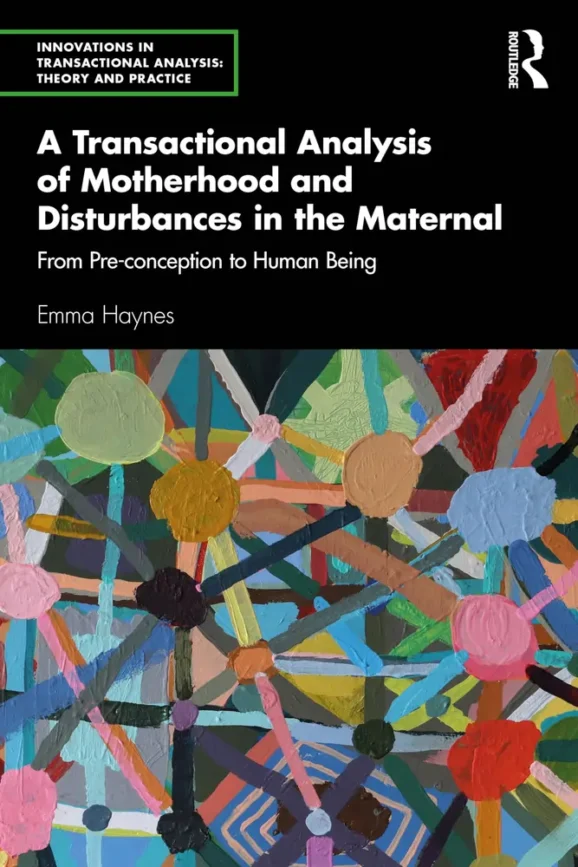Crisis in motherhood: Parental leave should be two years

John E. Kaye
- Published
- Authors, Home, Opinion & Analysis

According to perinatal psychotherapist Dr Emma Haynes, many new parents have no choice but to place their child into daycare from an early age. This, she warns, is harming the next generation and society.
By Dr Emma Haynes
Precisely at the point when women need support the most—when raising young children—many British mothers feel they have no choice but to get back to work as soon as possible due to financial struggles.
For all the bluster from Westminster that the family is the cornerstone of society, parents are in practice left high and dry, with a shameful lack of support when it comes to the nurturing and care of their infants.
Little real value is assigned to the rearing of the next generation, evidenced by our nation’s grossly underfunded and acutely failing maternity and perinatal care system.
The woeful support structure extends out of the clinical setting and into the family home. Despite being a first-world country, the UK has some of the lowest rates of maternity and paternity pay, combined with one of the most expensive childcare systems in the world.
Meanwhile, a cost-of-living crisis rages on, leaving parental primary caregivers feeling squeezed and stressed beyond their limits, trying to juggle life and make ends meet with extra mouths to feed.
The assault comes direct from the top. The government’s economic strategy in recent years has been to boost workforce participation among mothers of young children rather than provide the assistance they truly need, to be where they are needed most—by their infant’s site.
It reveals a shocking disconnect between vote-friendly ideology and brass-tacks policy, and one which places additional pressure upon parents’ heads as well as an unfair sense of guilt and shame if they do not head back to work soon after birth.
That they should be with their young children rather than being forced to place them into daycare as so many do is no woolly ideal. There is a wealth of scientific evidence that back this up.
The bottom line is that the push back to work, coupled with the lack of choice for families, has potentially serious implications for the wellbeing of both mother and child, and significant long-term costs to society in terms of addressing their resulting mental health issues and, with children, any number of developmental issues.
Far from building a robust society upon the pillars of the next generation, then, we see instead a chronic, pervasive and, frankly, perverse undermining of these very foundations.
Worse, it exposes this policy for what it is: blinkered, short-sighted and destructive.

Perinatal psychotherapist Dr Emma Haynes, author of A Transactional Analysis of Motherhood and Disturbances in the Maternal, says that there is a crisis in motherhood that is, in part, being fuelled by intolerable financial and social pressures being placed on new parents.
Why Parenting During The First Two Years Is Vital
It is well known that the first 1,000 days, or roughly two years, of an infant’s life are utterly pivotal to their development and future wellbeing due to the rapid, unique, and fundamental brain development that occurs during this period.
The infant’s brain is shaped by the experiences and environments provided by its caregivers (most often mothers) and is hardwired to learn about connection, regulation, and relationships.
Self-regulation, a key skill acquired through good enough parenting, is essential to a person’s capacity to thrive rather than simply survive and is fundamental to the difference between good and poor mental health. It is, however, sorely lacking in many, as the record levels of anxiety diagnoses in the UK attest, particularly among children and teenagers.
Yet this is precisely the time when parents feel their support is at zero and they are, effectively, alone, just when they need it the most.
Do we know what happens to an infant when it goes into a childcare system, where staff are often paid the minimum wage, are burdened with looking after more than one child at once, and there is a constantly changing staff rota?
How does a revolving door of caregivers impact the infant emotionally and psychologically?
There is emerging evidence that childcare facilities with high staff turnover are associated with instability and may cause distress and developmental difficulties in an infant.
There has to be, in short, a difference between an infant who is raised by a single, valued, and responsive caregiver and one in childcare who never has the time and consistency to connect and attach to their carer, because as soon as the child adjusts to this new person, someone else steps in. Within childcare settings children also need to compete with other infants for any kind of attention, leaving some of them possibly feeling neglected.
That life has become increasingly expensive may account in part for the birth rate falling to a record low of 1.49 children per woman. Many couples simply cannot afford to lose one source of income to have a child and certainly cannot afford for one parent to stay at home and devote themselves to the first two critical years of their child’s life.
Instead, and tragically, they have come to associate starting a family with having to place their child into the care of others to raise it, so the parents can both go to work to pay for it.
At the same time, mental health conditions in parents are now more prevalent, in particular anxiety, especially about raising an infant and how to parent it successfully.
When speaking to young British women, gone is the desire to get married, settle down, and have kids. Many now seem ambivalent about having children at all. There are, of course, multiple reasons for this, such as environmental concerns, but the economic factor is an all-too-common worry.
The Solution Is Child’s Play
The UK government is out of touch with the reality of the parenting journey and needs to face up to the falling birth rate quickly.
Infants are the future generations desperately needed to pay the taxes to support the future economy and our aging population, and mothers are the containers of these future generations.
When seen in this light, it becomes clear that the government cannot continue burying its head on the matter.
Neither can employers, which are also part of the problem. The corporate world has huge sway in policy changes and many companies could do so much more to support their employees with children.

A Transactional Analysis of Motherhood and Disturbances in the Maternal is a must-read for anyone interested in the intersection of psychotherapy, maternal health, and societal dynamics. Dr Emma Haynes’ passion, expertise, and commitment to filling the gaps in TA theory make this book a compelling contribution that has the potential to inspire further research and dialogue in the field of perinatal psychotherapy.
An economic strategy that fails to account for the future needs of society is no strategy at all, and when perinatal care is left out of the equation, that is what we are faced with.
Government strategy must change, focussing investment where it matters most: on the care of pregnant women, mothers, and parents, offering the support they need to bring up the next generations of happy, healthy, well-adjusted and useful members of society.
In no uncertain terms, parents are often the best providers of the care a child requires, and as a child’s long-term mental wellbeing hinges on this critical stage of development, we need to see paid maternity/paternity leave increase to two years, covering the vast majority of those all-important first 1,000 days.
Allowing parents to focus on raising their children during this period, should they wish to do so, will cost more in the short term but in the long term could bring significant savings, reducing the costs to society of treating long-term mental, psychological and emotional issues.
Employers will benefit as well, allowing them to retain valuable employees rather than losing them due to stress and sickness or because childcare is simply too costly.
Most of all, families will reap dividends, being able to afford to nurture and raise their children as they are meant to do, rather than be divided because of the need to place food on the table and a roof over their heads.
A Transactional Analysis of Motherhood and Disturbances in the Maternal: From Preconception to Human Being by Dr Emma Haynes (Routledge) is out now on Amazon, available in paperback and eBook formats, priced £29.99 and £21.99 respectively. For more information, visit www.emmahaynes.co.uk
RECENT ARTICLES
-
 Afore SURA awarded Pension Fund Management Company of the Year 2025
Afore SURA awarded Pension Fund Management Company of the Year 2025 -
 BOV Fund Services Limited wins in The European Banking & Finance Awards 2024
BOV Fund Services Limited wins in The European Banking & Finance Awards 2024 -
 Amberdata wins two titles in The European Banking & Finance Awards 2024
Amberdata wins two titles in The European Banking & Finance Awards 2024 -
 Ajman Bank wins in The European Banking & Finance Awards 2024
Ajman Bank wins in The European Banking & Finance Awards 2024 -
 Creditú wins three titles at The European Banking & Finance Awards 2024
Creditú wins three titles at The European Banking & Finance Awards 2024 -
 Krungthai Bank PCL wins five awards in The European Banking & Finance Awards 2024
Krungthai Bank PCL wins five awards in The European Banking & Finance Awards 2024 -
 Oakridge Property Group wins at The European Global Business Awards 2024
Oakridge Property Group wins at The European Global Business Awards 2024 -
 Old Mutual Investment Group wins two titles at The European Global Banking & Finance Awards 2024
Old Mutual Investment Group wins two titles at The European Global Banking & Finance Awards 2024 -
 AXA IM Select wins at The European Global Banking & Finance Awards 2024
AXA IM Select wins at The European Global Banking & Finance Awards 2024 -
 Zenith Bank Ghana wins five titles at The European Banking & Finance Awards 2024
Zenith Bank Ghana wins five titles at The European Banking & Finance Awards 2024 -
 SeABank awarded The Risk Management Bank of the Year - Vietnam 2024
SeABank awarded The Risk Management Bank of the Year - Vietnam 2024 -
 Vista Land & Lifescapes Inc. wins three titles at The European Global Business Awards 2024
Vista Land & Lifescapes Inc. wins three titles at The European Global Business Awards 2024 -
 Boursa Kuwait wins two titles at The European Global Sustainability & ESG Awards 2024
Boursa Kuwait wins two titles at The European Global Sustainability & ESG Awards 2024 -
 Gulf African Bank wins four titles at The European Banking & Finance Awards 2024
Gulf African Bank wins four titles at The European Banking & Finance Awards 2024 -
 Gulf Insurance Group awarded two Global Banking & Finance titles for 2024
Gulf Insurance Group awarded two Global Banking & Finance titles for 2024 -
 Eccelsa Aviation awarded three Global Business 2024 titles, including Best FBO Brand – Europe
Eccelsa Aviation awarded three Global Business 2024 titles, including Best FBO Brand – Europe -
 Afore Sura awarded Pension Fund Management Company of the Year 2024
Afore Sura awarded Pension Fund Management Company of the Year 2024 -
 Toledo Capital AG wins Best Boutique Wealth Management - Family Office 2024
Toledo Capital AG wins Best Boutique Wealth Management - Family Office 2024 -
 Banco de Chile awarded four Global Banking & Finance 2024 titles, including Bank of the Year - Chile
Banco de Chile awarded four Global Banking & Finance 2024 titles, including Bank of the Year - Chile -
 Kontora Family Office GmbH awarded Best Wealth Management Services - Germany 2024
Kontora Family Office GmbH awarded Best Wealth Management Services - Germany 2024 -
 Banque Misr awarded five Global Banking & Finance 2024 titles, including Best Banking Brand - MENA
Banque Misr awarded five Global Banking & Finance 2024 titles, including Best Banking Brand - MENA -
 Krungthai Bank PLC wins five awards in The European Banking & Finance Awards 2023
Krungthai Bank PLC wins five awards in The European Banking & Finance Awards 2023






















